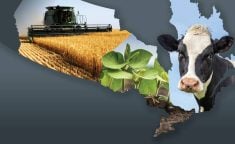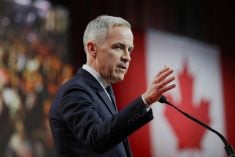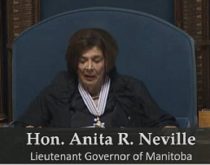As federal-provincial-territorial meetings wrap up in Calgary, Manitoba’s agriculture minister says discussions touched on all areas of concern regarding the development of Canada’s next agricultural policy framework, which will launch in 2018.
“We want public trust of course, research and development, we want to increase trade, we want to ensure that if we get this great crop off that we get it out in a timely manner,” said Ralph Eichler during a conference call on Monday morning. “And of course, as we go forward as a government, we continue to want to consult with our stakeholders to ensure that industry is well served, whether it be trade agreements, regulations, sustainable development, and of course reducing red tape. Those are very aggressive agenda items for us.”
Read Also

Mazergroup’s Bob Mazer dies
Mazergroup’s Bob Mazer, who helped grow his family’s company into a string of farm equipment dealerships and the main dealer for New Holland machinery in Saskatchewan and Manitoba, died July 6 from cancer.
However, the meetings did not set a dollar figure for Growing Forward 3, although Eichler and others have pushed for a greater level of investment.
“We’re hoping once the federal minister gets back into session and meets with his colleagues he can take that message loud and clear to the federal government that we need to know the dollar amount as we move forward,” he said, stressing that provinces must know what kind of funding they will be working with to effectively plan for the future.
The current agricultural policy framework — Growing Forward 2 — established a $3-billion investment over five years via a 60/40 funding model. It is expected the next framework will also see the federal government fund 60 per cent of approved projects, with provinces and territories investing the remaining 40 per cent.
Eichler said that business risk management was also discussed at length during the meetings and will continue to be a key pillar within the next policy framework. However, promoting the development of private sector risk management tools was also put forward as a policy priority.
Enhanced trade and increased market access garnered much discussion over the two-day conference, as well, with participants pushing for the implementation of new trade deals, especially those that see Canada expand markets beyond traditional trading partners like the United States.
“There is some concerns about what is going to happen with the U.S. election and how that may impact us as a country,” said Eichler. “That’s why these outside markets are so important.”
He went on to note that the Manitoba government has and is continuing to push the federal government to move forward on both the Trans-Pacific Partnership and the Canada-EU Comprehensive Economic Trade Agreement as soon as possible.
“It’s one thing to say you are open for business, it’s another thing to be ready for that business, so we were very encouraged by those discussions,” he said.
Increasing consumer confidence and public trust was another key item discussed by the ministers. Eichler said much more could be done to inform people about how their food is produced and why it is safe.
“It’s about being open, about being transparent, sharing information and making sure we get the good news out there too,” said the minister. “We have not done a good job on that as a government and as a business, we are very humble people and sometimes we need to ensure we are open and we do talk about things.”
Sustainability, environmental protections, and climate change were priorities for the ministers as they developed the new framework as well. As was the promotion of valued-added products aimed at the export market and a renewed focus on research and development.
A statement issued by Agriculture and Agri-Food Canada Minister Lawrence MacAulay, indicated that there will be continued collaboration between both levels of government as the policy framework moves forward, but no mention as to whether or not calls for increased funding would be answered.



















